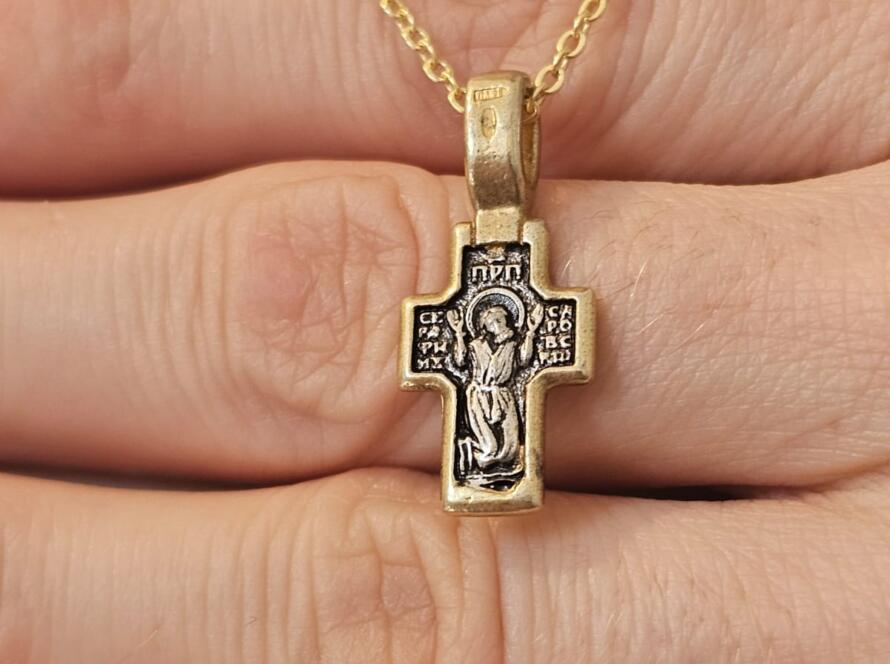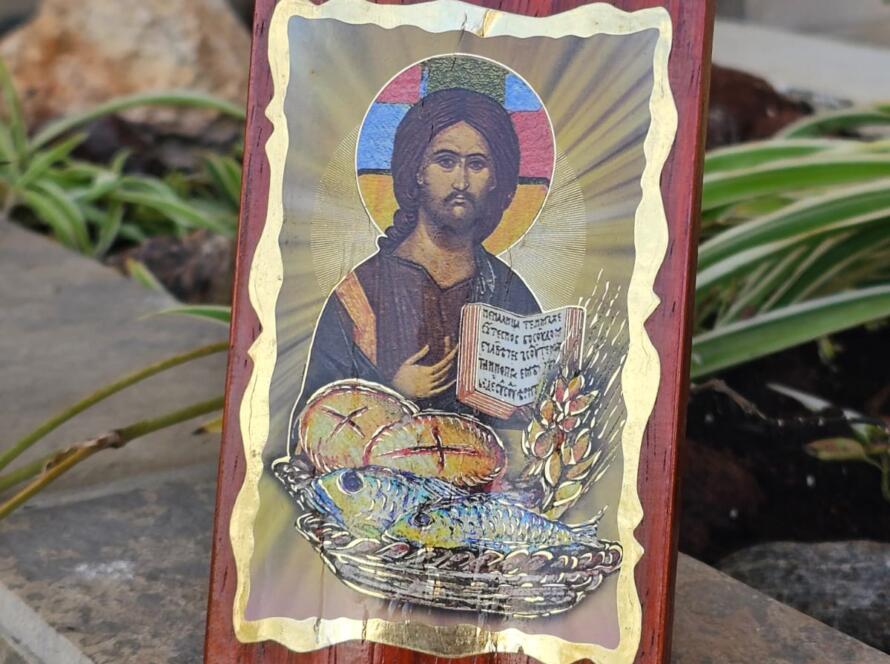Summary
How to Use Holy Water, Blessed Oil & Blessed Salt – Practical Christian Guide
How to Use Holy Water, Blessed Oil & Blessed Salt – Practical Christian Guide
A complete 2025 step-by-step guide for every Christian home
Meta Title
How to Use Holy Water, Blessed Oil & Blessed Salt – Practical Christian Guide (2025)
Meta Description
Learn how Christians use holy water, blessed oil, and blessed salt for protection, healing, blessing, prayer, and spiritual growth. A practical 2025 guide based on ancient Christian tradition.
⭐ Introduction: Rediscovering Ancient Christian Practices
For centuries, Christians carried small sacramentals with them—holy water, blessed oil, and blessed salt—as spiritual tools for prayer, protection, healing, and blessing. These items were used daily by families, priests, travelers, soldiers, and believers of all ages.
Today, many Christians are returning to these ancient practices. In a world filled with anxiety, uncertainty, and spiritual challenges, sacramentals offer comfort, strength, and a tangible reminder of God’s presence.
This guide explains clearly and practically how to use holy water, blessed oil, and blessed salt, how they work, and how to incorporate them into your daily spiritual life.
⭐ 1. What Are Sacramentals? (Simple Explanation)
Sacramentals are holy signs and objects used by Christians to draw closer to God. They are not magic, and they do not replace the sacraments (like Baptism or Communion). Instead, they help open the heart to grace.
Common sacramentals include:
-
Holy water
-
Blessed oil
-
Blessed salt
-
Crosses and crucifixes
-
Prayer cards
-
Rosaries
-
Religious icons
-
Blessed incense
You can explore authentic Holy Land sacramentals in this category:
Holy Land Gifts → https://holylandmerchandise.com/?s=holy+land
⭐ 2. Holy Water – Meaning & Practical Uses
2.1 What Holy Water Symbolizes
Holy water represents:
-
Spiritual cleansing
-
Protection
-
Renewal
-
Baptism
-
God’s blessing
Holy water reminds Christians of their baptismal identity and God’s constant care.
2.2 How to Use Holy Water in Daily Life
✔ 1. Blessing Yourself
The simplest and most ancient use:
-
Dip your fingers
-
Make the Sign of the Cross
-
Say a short prayer such as:
“In the name of the Father, and of the Son, and of the Holy Spirit.”
This can be done when leaving home, before sleeping, or when facing stress.
✔ 2. Blessing Your Home (Doorways & Rooms)
Walk through your home with a small bottle of holy water. Sprinkle:
-
Door frames
-
Bedrooms
-
Living room
-
Kitchen
Pray:
“Lord, bless this home and all who enter it. May Your peace dwell here.”
Many Christians repeat this monthly or during difficult times.
✔ 3. Protection from Evil or Negative Influences
Traditionally, holy water is used against harmful spiritual influences.
Sprinkle a small amount in:
-
Corners of rooms
-
Windows
-
Main entrances
✔ 4. Using Holy Water During Prayer
Keep a bottle nearby when praying the Rosary or reading Scripture.
A small sprinkle can help focus the mind and bring spiritual calmness.
Explore prayer tools like handmade rosaries here:
Rosaries → https://holylandmerchandise.com/?s=rosary
✔ 5. Blessing Family Members
Parents often bless their children before sleep or school by tracing a small cross on the forehead.
✔ 6. Blessing Objects
Holy water can be sprinkled on:
-
A new Bible
-
A cross
-
A rosary
-
A new home
-
A car
To dedicate them to God.
⭐ 3. Blessed Oil – Meaning & Practical Uses
3.1 What Blessed Oil Represents
In Scripture, oil symbolizes:
-
Healing
-
Consecration
-
Protection
-
God’s presence
-
Strength in trials
Biblical roots include:
-
Anointing kings and prophets
-
Jesus healing the sick
-
The parable of the wise virgins with oil lamps
Blessed oil is powerful not because of the oil itself, but because of the prayer and faith behind it.
3.2 How to Use Blessed Oil in Daily Life
✔ 1. Anointing Yourself or Others
Place a small amount on your finger and trace a cross on:
-
Mind (for peace and clarity)
-
Chest (for emotional healing)
-
Hands (for strength)
-
Affected areas (for physical healing)
Pray:
“Lord, may Your healing and protection rest upon me.”
✔ 2. Anointing Doors & Windows for Protection
Many Christian families anoint the main doorway with a small cross of oil and pray for protection over those who live inside.
✔ 3. Using Oil During Illness
Blessed oil is often used while praying for healing.
Biblical foundation: James 5:14
“Is anyone among you sick? Let them call the elders of the church to pray over them and anoint them with oil.”
✔ 4. Spiritual Strength During Trials
Use the oil when seeking courage, comfort, or clarity.
It is a physical reminder of God’s closeness.
✔ 5. During Fasting or Extended Prayer
Before beginning a fast, some believers anoint themselves and pray for strength.
✔ 6. Anointing Objects Used in Prayer
For example:
-
A cross
-
A rosary
-
A Bible
Lightly anointing them is a way of dedicating them to God.
⭐ 4. Blessed Salt – Meaning & Practical Uses
4.1 Symbolism of Blessed Salt
In Scripture, salt symbolizes:
-
Purity
-
Preservation
-
Commitment
-
Covenant
-
Wisdom
Jesus said:
“You are the salt of the earth.” (Matthew 5:13)
Blessed salt has been used since early Christianity for purification and protection.
4.2 How to Use Blessed Salt in Daily Life
✔ 1. Sprinkling Salt in Doorways & Corners
Used for spiritual protection and blessing of a home.
✔ 2. Mixing a Pinch in Drinking Water
Traditionally done (very lightly) for:
-
Spiritual protection
-
Healing
-
Renewal
Use only a tiny amount—symbolic, not heavy.
✔ 3. Using Blessed Salt Outdoors
Sprinkle at:
-
Entrances
-
Garden spaces
-
Property borders
To dedicate the land to God.
✔ 4. Keeping a Small Pouch in Your Bag or Car
Many Christians carry blessed salt as spiritual protection.
✔ 5. Cleansing Objects or Spaces
A pinch of salt can be mixed with holy water to purify a place.
⭐ 5. How to Store Holy Water, Blessed Oil & Salt
Holy Water:
-
Keep in a small bottle
-
Store in a cool, clean place
-
Replace periodically (every few months)
Blessed Oil:
-
Keep in a glass vial
-
Store away from heat and sunlight
-
Refresh yearly if possible
Blessed Salt:
-
Keep in a sealed container
-
Lasts indefinitely
-
Use in small symbolic amounts
You can find suitable glass bottles and kits here:
Holy Land Gifts → https://holylandmerchandise.com/?s=holy+land
⭐ 6. Using Sacramentals Together: Powerful Combinations
✔ Holy Water + Blessed Salt
Used for blessing homes and spaces.
✔ Blessed Oil + Prayer
Used for healing and spiritual strength.
✔ Holy Water + Rosary
Used for protection and deeper prayer focus.
✔ Full Protection Kit
Includes:
-
Cross
-
Holy water
-
Blessed oil
-
Blessed salt
-
Rosary
(A perfect product category for your store.)
⭐ 7. When to Use Holy Water, Oil & Salt
-
Before sleep
-
Before leaving the house
-
During illness or anxiety
-
During fasting
-
While praying over family
-
When moving into a new home
-
During spiritual challenges
-
On special holy days
-
When blessing a new object
Sacramentals bring peace and confidence to daily Christian living.
⭐ Frequently Asked Questions (FAQ)
1. Can anyone use holy water or blessed oil?
Yes. Every Christian can use them for personal prayer and blessing.
2. Do these items replace prayer or the sacraments?
No. They support and enrich prayer—they do not replace it.
3. Do they “work” automatically?
They are not magic. They are tools through which God can act when used with faith.
4. Can blessed oil be used on children?
Yes—many parents bless their children daily.
5. How often can I use holy water or oil?
As often as you feel led. There is no limit.
⭐ Conclusion: Bringing Ancient Power Back Into Daily Life
Holy water, blessed oil, and blessed salt have been part of Christian life for nearly 2,000 years. They offer comfort, strength, protection, and a deep sense of God’s presence. In 2025, believers around the world are rediscovering these beautiful practices and integrating them back into everyday life.
To explore authentic sacramentals handcrafted in Bethlehem, Jerusalem, and Nazareth, visit:
-
Holy Land Gifts → https://holylandmerchandise.com/?s=holy+land
-
Olive Wood Gifts → https://holylandmerchandise.com/?s=olive+wood
-
Rosaries → https://holylandmerchandise.com/?s=rosary
-
Crosses → https://holylandmerchandise.com/?s=cross





